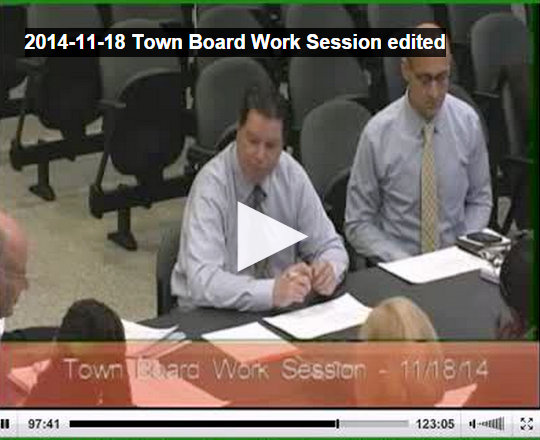[wpvideo k1gnNbxH]
You might call it a classic case of “robbing Peter to pay Paul.” Maybe that was why the Town Board last month thought it was so funny when the town comptroller reminded them of their vote to authorize that “payment.”
The “Peter” is Peter Carparelli, the deputy town attorney responsible for negotiating millions of dollars in annual tax certiorari settlements for which he must rely for payment of millions of dollars in the Town’s Risk Retention Fund.
The “Paul” is Town Supervisor Paul Feiner. In his 23 years as town supervisor, Mr. Feiner has often used the Town’s fund balance to subsidize operating expenses, rather than risk his political future by hiking taxes or cutting spending. When fund balance gets all used up, though, as it did in 2007, Mr. Feiner had to raise taxes by 23%.
But Mr. Feiner has never before drained the Town’s contingency fund for judgments and claims to avoid a tax hike. Yet Mr. Feiner has now drained 40% of that fund at the same time that Mr. Carparelli has notified school and fire districts in the Town to expect an unprecedented five-fold increase next year in Town-negotiated tax certiorari refund payments.
The transfer of funds that Peter Carparelli will need to funds that Paul Feiner can use to avoid a double digit tax hike next year is thus akin to “robbing Peter to pay Paul.”
Mr. Feiner insists that there was nothing wrong in draining the fund because, as he puts it, it had too much money. But nobody at Greenburgh Town Hall, including Mr. Feiner, wants to answer any questions about it.
The transfer of funds was voted on at a meeting of the town board on October 8. There was no discussion of the vote beforehand or any explanation of the vote afterward.
Residents asked for an explanation at the first town budget hearing on the Monday before Thanksgiving and at the second budget hearing on December 10. No answers were given.
The only public “discussion” of the issue thus far took place at a work session November 18, when town comptroller Bart Talamini explained that by using these contingency funds for future tax cert settlements, the Town’s fund balance for the “town entire,” which had reached dangerously low levels in June, was now robust enough for Mr. Feiner to count on to avoid a double digit tax hike next year.
Mr. Talamini reminded the town board that they had approved the transfer of these contingency funds in October (10/08/14) — he refers to it on the videotape as “CO-2″ — referring to Comptroller Resolution No. 2 —town board members all laughed and he continues with “you know what that resolution is all about”. When asked his opinion by Supervisor Feiner of any concerns Mr. Talamini warns the town board that “until we get away from that habit” the continued dependence on fund balance to fund operating expenses is a net “negative” for the Town.
Rather than answer how it makes sense this year to deplete a fund for tax cert refunds in the teeth of warnings from town officials to expect an unprecedented increase next year in the dollar amount of Town-negotiated tax cert refunds, Mr. Feiner insists without explanation that the fund was determined to have had “too much money.” He doesn’t say who made that determination, what it was based on, or whether it took into account the anticipated need for such funds next year.
Instead, when pressed further, he says the Town’s tax assessor tells him that her office cannot predict the number of tax cert filings in coming years.
But the tax assessor’s information as to the number of anticipated tax cert filings in a coming year is irrelevant, and Mr. Feiner knows it is irrelevant. The issue is not the number of upcoming tax cert filings, but rather the amount of Town-negotiated tax cert refunds, which the Town has been estimating for school and fire districts since at least 2007.
At the December meeting of the ECC, however, Mr. Feiner said he wasn’t aware that anyone in the Town’s government estimates these amounts so that school and fire districts, which must reimburse the Town for their share of the refunds, will have enough cash on hand to do so.
He also said that none of these issues mattered because it was more important to him politically that the Town not exceed the state mandated tax cap.
The problem, of course, is that if Mr. Feiner was unaware that the Town not only routinely projects these figures, but has notified school and fire districts to expect an unprecedented five-fold increase in such refunds next year, how is it that Mr. Feiner and his colleagues could have credibly concluded that the Town’s Risk Retention Fund had “too much money”?
And if the Town can’t sell Frank’s, and is unable to enter into any deal to get money from the former WestHELP property, the Town may not have the cash on hand next year to pay those tax cert refunds when they are negotiated.

